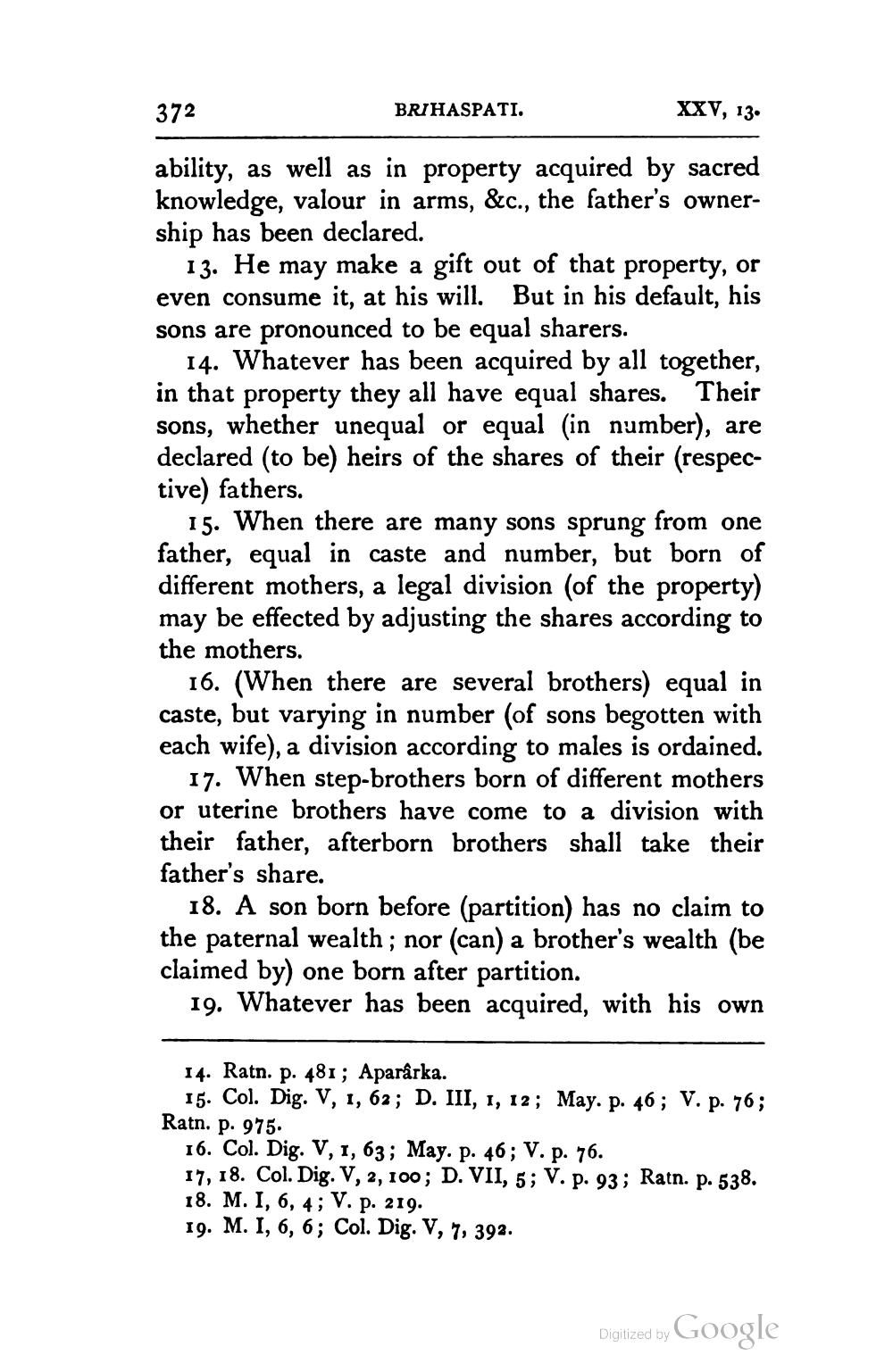________________
372
BRIHASPATI.
XXV, 13.
ability, as well as in property acquired by sacred knowledge, valour in arms, &c., the father's ownership has been declared.
13. He may make a gift out of that property, or even consume it, at his will. But in his default, his sons are pronounced to be equal sharers.
14. Whatever has been acquired by all together, in that property they all have equal shares. Their sons, whether unequal or equal (in number), are declared (to be) heirs of the shares of their (respective) fathers.
15. When there are many sons sprung from one father, equal in caste and number, but born of different mothers, a legal division (of the property) may be effected by adjusting the shares according to the mothers.
16. (When there are several brothers) equal in caste, but varying in number (of sons begotten with each wife), a division according to males is ordained.
17. When step-brothers born of different mothers or uterine brothers have come to a division with their father, afterborn brothers shall take their father's share.
18. A son born before (partition) has no claim to the paternal wealth ; nor (can) a brother's wealth (be claimed by) one born after partition.
19. Whatever has been acquired, with his own
14. Ratn. p. 481; Aparârka.
15. Col. Dig. V, 1, 62; D. III, 1, 12; May. p. 46; V. p. 76; Ratn. p. 975.
16. Col. Dig. V, 1, 63; May. p. 46; V. p. 76. 17, 18. Col. Dig. V, 2, 100; D. VII, 5; V. p. 93; Ratn. p. 538. 18. M. I, 6, 4; V. p. 219. 19. M. I, 6, 6; Col. Dig. V, 7, 392.
Digitized by Google




